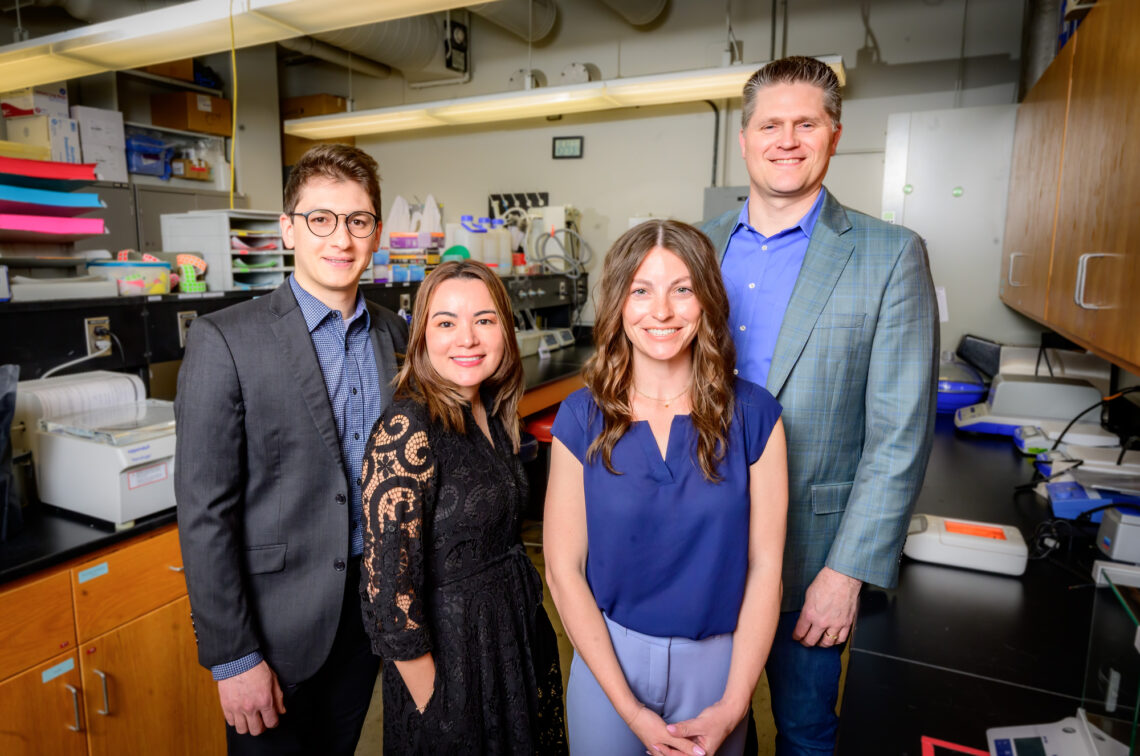Analysis: Alternative Proteins Could Add €111B a Year to the EU’s Economy by 2040
A new analysis by systems change company Systemiq, supported by GFI Europe, has found that plant-based foods, cultivated meat, and fermentation could add €111 billion a year to the EU’s economy by 2040 if treated as a strategic priority. This is comparable to the GDP contribution of Europe’s wine sector. Furthermore, the industry could support 414,000 high-quality jobs in areas such as science, agriculture, and logistics, if given policy support …
Illinois Ranks Third in US for Alternative Protein Companies, Report Finds
A newly released report from the Illinois Alternative Protein Innovation Task Force outlines a multi-sector plan to expand the state’s role in alternative protein production, citing benefits across economic development, public health, and agricultural diversification. The report is the result of a two-year review led by the task force formed by Governor J.B. Pritzker in 2023, described as the first of its kind at the state level in the United …
Studies Say Significant Proportion of Consumers Would Consider Cultivated or Plant-Based Diets for Pets
Two studies co-led by Griffith University Adjunct Professor Andrew Knight and published in the journal Animals have examined consumer attitudes to sustainable diets for pets. The first study surveyed 2,639 dog guardians worldwide, finding that around 84% of them currently feed their pets a conventional or raw meat-based diet. However, 43% of this group said they would consider at least one type of more sustainable dog food, such as vegan, …
Report: 35% of European Consumers Are Open to Consuming Cultivated Meat
A new report by EIT Food’s Consumer Observatory has assessed the attitudes of European consumers to food products made using biotechnology. The results indicate that 35% of people are open to consuming cultivated meat, while almost 43% are willing to try precision-fermented dairy products. However, just 23% would consume 3D-printed food, while only 26% are open to genetically altered products. Younger consumers are the most willing to try food produced …
Patent Filings for Cultivated & Plant-Based Meat Decline Amid Funding & Regulatory Challenges
A new report by intellectual property firm Appleyard Lees has found that annual patent filings for cultivated meat innovations fell by almost 10% from 2022 to 2023. In contrast, there was an increase of around 9% the previous year, while filings more than tripled from 2019 to 2021. The decline has been particularly sharp in the US, where applications have fallen by over 40%. This is likely due to bans …
Report: Government Support Could Make Australia a Leader in Food Biotechnology and Biomanufacturing
A new report has urged the Australian government to take advantage of the “once in a generation” opportunity to build sovereign capability in food biotechnology and biomanufacturing. Called Made & Grown – The future of food biotechnology & biomanufacturing in Australia, the white paper has been produced through a collaboration between Cellular Agriculture Australia (CAA), ANU Agrifood Innovation Institute (AFII), Australian Strategic Policy Institute (ASPI), and the ANU National Security …
Report Says European Alternative Protein Research Has Tripled Since 2020
A new analysis by GFI Europe has found that alternative protein research in Europe is growing at a rapid rate. Since 2020, the number of studies published and the levels of public funding received have almost tripled. Last year, 798 academic research papers were published examining plant-based foods, fermentation-made foods, and cultivated meat or ingredients; this figure is up 282% compared to 2020. Furthermore, public funding for the field expanded …
Study: Ironic Biotech’s Fermentation-Derived Heme Has Up to 65 Times Better Iron Absorption Than Competing Products
An in vitro study by Swedish startup Ironic Biotech has concluded that the company’s patented, precision fermentation-derived iron protein significantly outperforms the best existing supplements. When combined with ascorbic acid (vitamin C), the proprietary heme iron ingredient reportedly delivered up to 65 times better bioavailability than high-quality commercial lactoferrin (even when the latter ingredient was enhanced with the same additive). It also outperformed iron sulfate and other common iron ingredients …
Meta-Analysis Reveals the Key Factors That Determine Willingness to Consume Cultivated Meat
A new meta-analysis published in the journal Trends in Food Science & Technology has identified key factors influencing people’s willingness to consume cultivated meat. 48 studies were analyzed, identifying 22 predictors. The most significant factors related to consumer perceptions were: Price is also likely to be a significant factor, with some studies indicating an unwillingness to pay extra for cultivated products. However, less data is available in this area, particularly …
Study: Precision Fermentation-Derived Chicken Protein Has Beneficial Digestive Effects for Dogs
In a new study, scientists at the University of Illinois Urbana-Champaign partnered with Bond Pet Foods to examine the effects of chicken protein produced using precision fermentation on the digestive health of dogs. First, Bond’s R&D team identified proteins that are highly abundant in the muscle tissues of chickens, and determined their DNA sequences. The DNA was inserted into the genome of brewer’s yeast to express the chicken protein, which …









